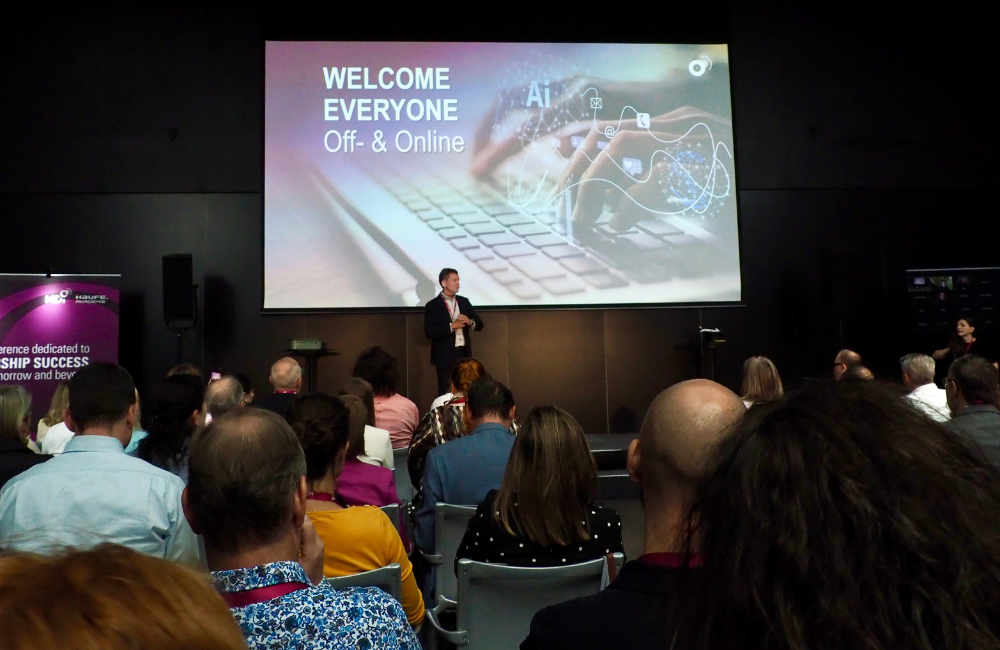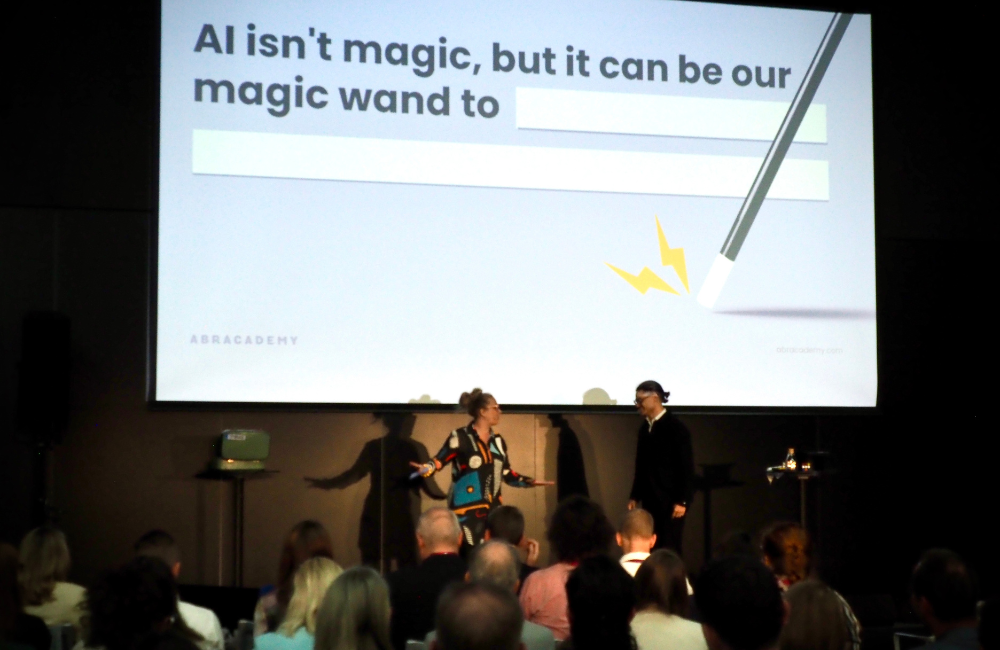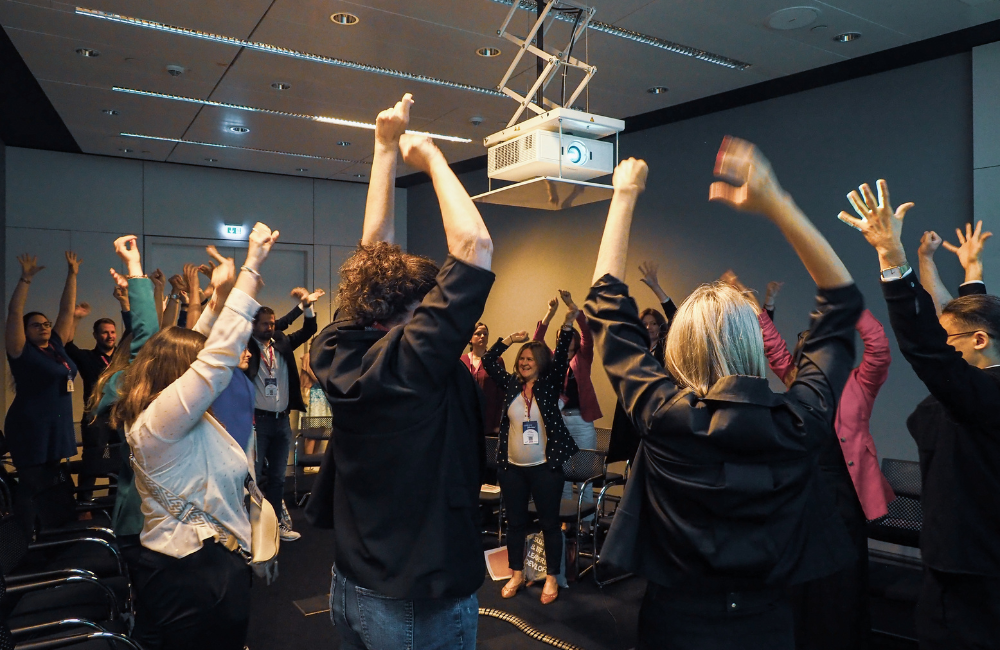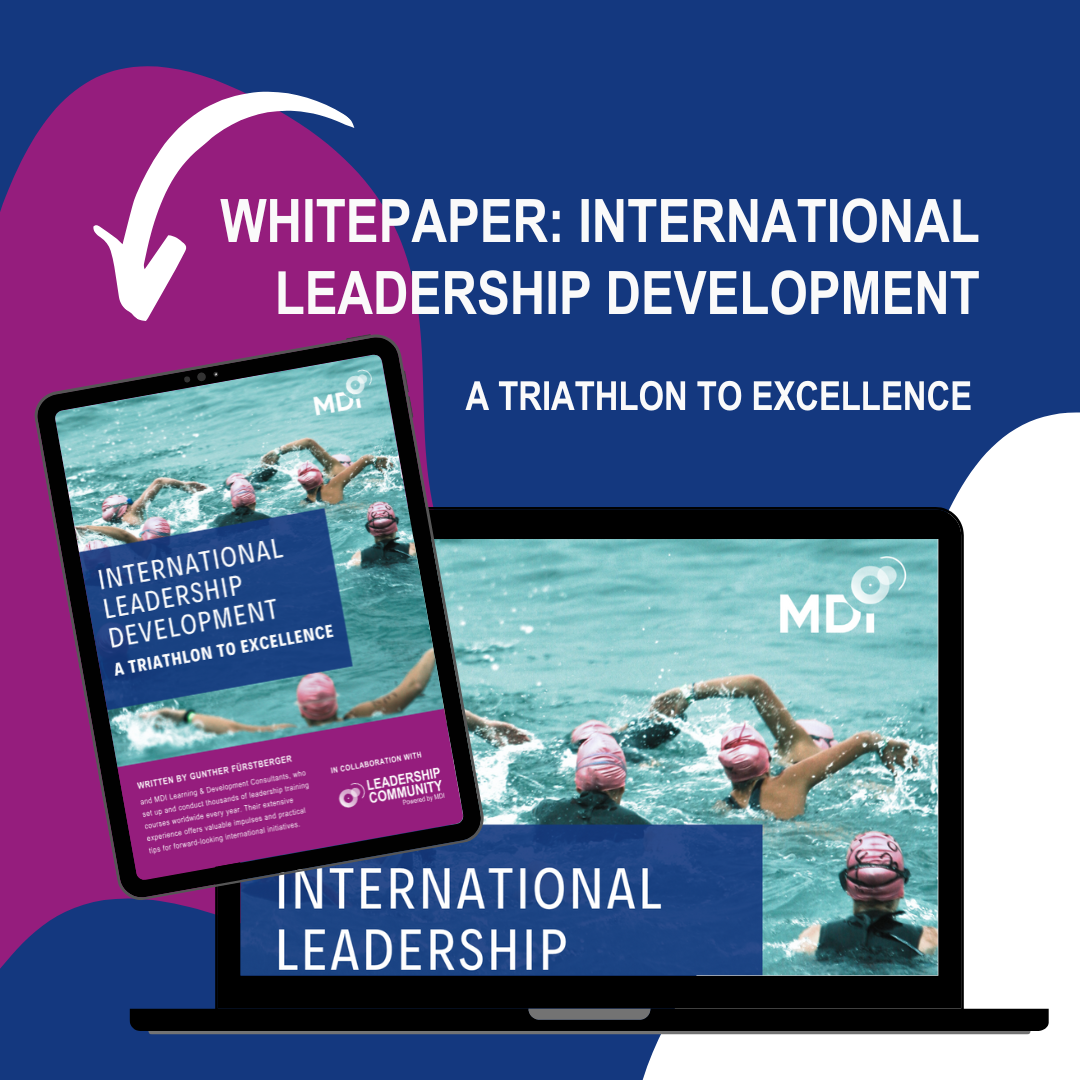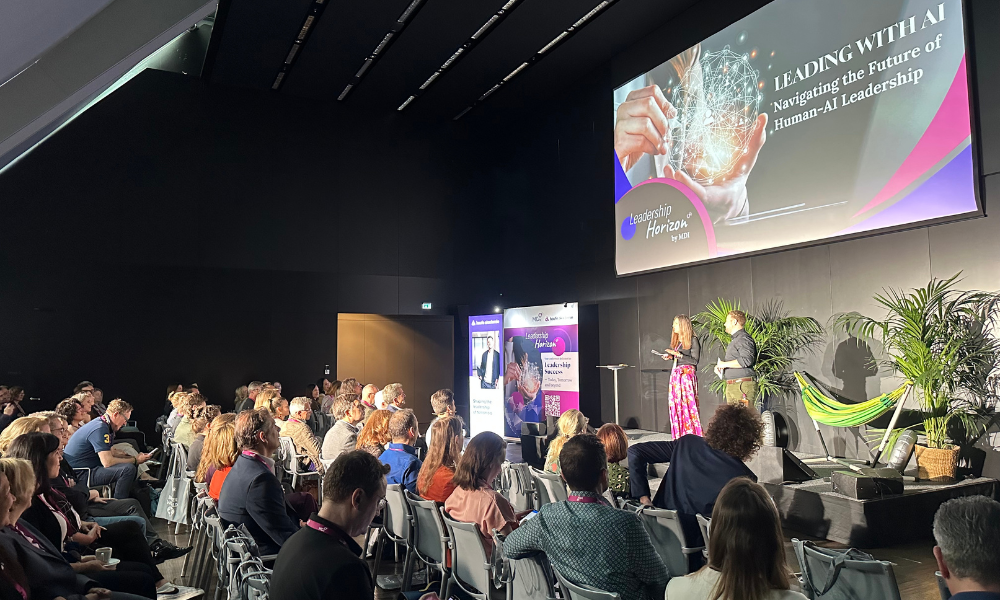
AI in Leadership in 2025: Impressions from Leadership Horizon
AI in Leadership in 2025: Impressions from Leadership Horizon
You want to listen to this article? You can find an AI-generated version here:
AI in Leadership in 2025: Impressions from Leadership Horizon
Christoph wrote this article for his print magazine, Magazin Training. You can also find this article in Issue 04 2025, pages 22-23.
On May 15th, 2025, over 150 HR professionals and executives gathered at the SO/Vienna hotel to explore one of today’s most pressing leadership questions: How is artificial intelligence redefining leadership—and what new capabilities will leaders need to thrive? Hosted by MDI, the conference Leadership Horizon focused on the theme “Leading with AI Agents: Navigating the Future of Human-AI Leadership” and delivered a day packed with insight, real-world applications, and powerful dialogue.
From Managing Machines to Leading AI
“We used to lead machines during the industrial era. Now, in the age of AI, we must guide intelligent systems—and be guided by them.” With this statement, the conference captured a key shift: leadership is no longer just about people. Instead, it must evolve into a role that navigates a growing ecosystem of smart, autonomous systems. Tomorrow’s HR will lead not only humans but also AI agents.
When AI Books Flights and Writes Proposals
MDI CEO Gunther Fürstberger kicked off the day with a compelling live demo that showcased what AI agents are already capable of—or will be very soon. Our attendees watched in awe as Gunther guided an AI assistant through tasks like booking flights, generating proposals, and performing administrative work that typically takes hours—all in just minutes.
“What you’re seeing may still be a few months out,” Gunther explained, “but it’s coming. By automating routine admin work, leaders can finally refocus on what matters: guiding people, thinking strategically, and driving innovation.” The takeaway was clear: AI will not just transform work—it will reshape our very understanding of productivity and time.
Voice First: The New Human-AI Interface
Next on stage was Malcolm Werchota, Business Strategist and AI evangelist, whose session “Co-Leading with AI – How Humans, Voice, and AI Agents Shape the Future Together” tackled the nuances of human-AI collaboration. Malcolm didn’t shy away from controversy, arguing that excessive data privacy fears can stifle innovation. “Of course, data protection is important,” he said, “but we need practical frameworks that don’t paralyze progress.”
One tip that resonated strongly with the audience: start using voice interfaces to interact with AI. “Speaking to systems can be up to three times faster than typing,” Werchota noted. “Voice-first isn’t just an option—it’s becoming the norm.”
We also made sure that networking was more than an afterthought. Carefully curated meetups during breaks allowed our attendees to forge meaningful connections in a structured yet relaxed setting, sparking deeper conversations beyond casual small talk.
AI in Leadership in 2025: Impressions from Leadership Horizon
Christoph wrote this article for his print magazine, Magazin Training. You can also find this article in issue 04 2025, pages 22-23.
On May 15th, 2025, over 150 HR professionals and executives gathered at the SO/Vienna hotel to explore one of today’s most pressing leadership questions: How is artificial intelligence redefining leadership—and what new capabilities will leaders need to thrive? Hosted by MDI, the conference Leadership Horizon focused on the theme “Leading with AI Agents: Navigating the Future of Human-AI Leadership” and delivered a day packed with insight, real-world applications, and powerful dialogue.
From Managing Machines to Leading AI
“We used to lead machines during the industrial era. Now, in the age of AI, we must guide intelligent systems—and be guided by them.” With this statement, the conference captured a key shift: leadership is no longer just about people. Instead, it must evolve into a role that navigates a growing ecosystem of smart, autonomous systems. Tomorrow’s HR will lead not only humans but also AI agents.
When AI Books Flights and Writes Proposals
MDI CEO Gunther Fürstberger kicked off the day with a compelling live demo that showcased what AI agents are already capable of—or will be very soon. Our attendees watched in awe as Gunther guided an AI assistant through tasks like booking flights, generating proposals, and performing administrative work that typically takes hours—all in just minutes.
“What you’re seeing may still be a few months out,” Gunther explained, “but it’s coming. By automating routine admin work, leaders can finally refocus on what matters: guiding people, thinking strategically, and driving innovation.” The takeaway was clear: AI will not just transform work—it will reshape our very understanding of productivity and time.
Voice First: The New Human-AI Interface
Next on stage was Malcolm Werchota, Business Strategist and AI evangelist, whose session “Co-Leading with AI – How Humans, Voice, and AI Agents Shape the Future Together” tackled the nuances of human-AI collaboration. Malcolm didn’t shy away from controversy, arguing that excessive data privacy fears can stifle innovation. “Of course, data protection is important,” he said, “but we need practical frameworks that don’t paralyze progress.”
One tip that resonated strongly with the audience: start using voice interfaces to interact with AI. “Speaking to systems can be up to three times faster than typing,” Werchota noted. “Voice-first isn’t just an option—it’s becoming the norm.”
We also made sure that networking was more than an afterthought. Carefully curated meetups during breaks allowed our attendees to forge meaningful connections in a structured yet relaxed setting, sparking deeper conversations beyond casual small talk.
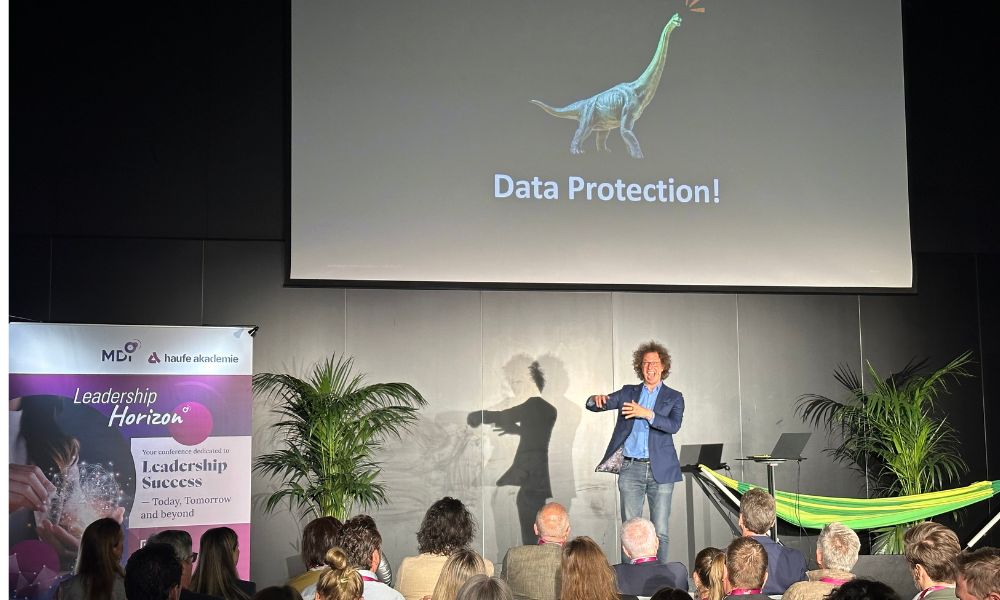
Conducting the AI Orchestra: What Leadership Looks Like Now
A key moment of the day was the virtual keynote by AI advisor Ayesha Khanna, livestreamed from Singapore. Her talk “Future of Work: Amplifying Human Potential in the Fourth Industrial Revolution” offered a hopeful vision of collaboration rather than replacement.
“This revolution isn’t about machines replacing humans,” she emphasized. “It’s about using technology to amplify human strengths.”
AI in Practice: The Voestalpine Case
The afternoon sessions dug deeper into implementation. Ernst Balla, HR Director at Voestalpine Metal Forming, gave a candid account of the company’s ongoing AI transformation. His talk “Insight into Voestalpine’s AI-Driven HR Transformation” laid out a modular, trial-based strategy that helped the Austrian industrial giant test, learn, and adapt fast.
Crucially, Ernst explained how early employee involvement and transparent communication helped overcome initial skepticism. His case study offered valuable lessons for HR leaders seeking to launch their own AI initiatives: successful AI integration is incremental, iterative, and above all—human-centered.
“Stop Hiring Humans?” A Thought-Provoking Provocation
One of the day’s more polarizing sessions came from Gernot Winter, co-founder of Superintelligenz GmbH. His talk, titled “Stop Hiring Humans! How, Why, and When AI Agents Will Replace Us in the Workforce”, was designed to provoke. Drawing a historical parallel, Winter referenced Pope Leo XIII, known for his stance on labor during the first industrial revolution—and jokingly suggested that the current Pope might call himself Leo XIV in response to today’s AI upheaval.
Despite the bold title, Gernot closed with a smile: “Please don’t actually stop hiring humans!” His real message: companies must prepare for a future where routine tasks are handled by AI—and human talent is upskilled for more meaningful, creative, and ethical work. “It’s not a question of if,” Gernot concluded, “but when. And new, more demanding roles will continue to emerge.”
Coaching in the Age of AI: The SAIGE Project
Later in the afternoon, our participants were introduced to SAIGE, an AI-powered coaching tool for leadership development, presented by Hamza Khan and Bailey Parnell. “We’re at a turning point in how we develop leaders,” Khan remarked. “Imagine every leader having 24/7 access to personalized feedback and support.” With SAIGE, that vision is already becoming reality.
A Real-World Use Case from PwC
Kirstin Zellmer, Leadership Ambassador at PwC Germany, shared how one of the world’s leading consultancies is embedding AI in daily leadership tasks. Her presentation, “People Manager Guide – A PwC AI-Driven Knowledge Tool”, showed how knowledge-sharing and guidance can be scaled effectively using internal AI tools.
Human vs. Machine: The Final Debate
The day closed with a high-level panel discussion on a central question: How much leadership can we delegate to AI—and how much still requires a human touch? Panelists included AI Austria board member Ruben Hetfleisch and UNIQA’s Innovation & AI Lead Barbora Dörflinger. The consensus? The future belongs to those who can strike the right balance between human intuition and machine intelligence.
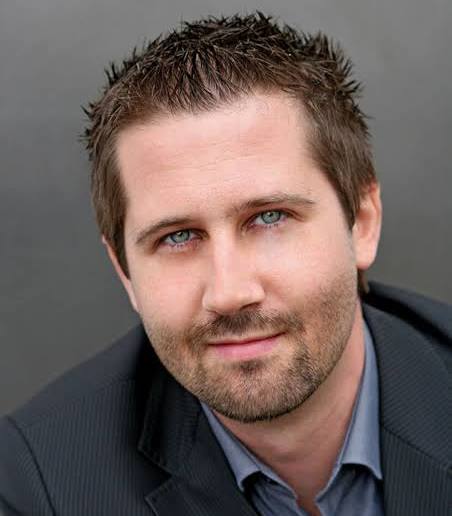
Christoph Wirl
Editor of Magazine Training
Christoph is an experienced editor with a demonstrated history of working in the education management industry. He is skilled in Small Talk, Writing, Entrepreneurship, Scuba Diving Instruction, and Public Speaking. Christoph graduated from Wirtschaftsuniversität Wien and is now editor and publisher of Magazin Training. He also wrote the book “Bullshit Busters” and is very knowledgeable on all things AI.


